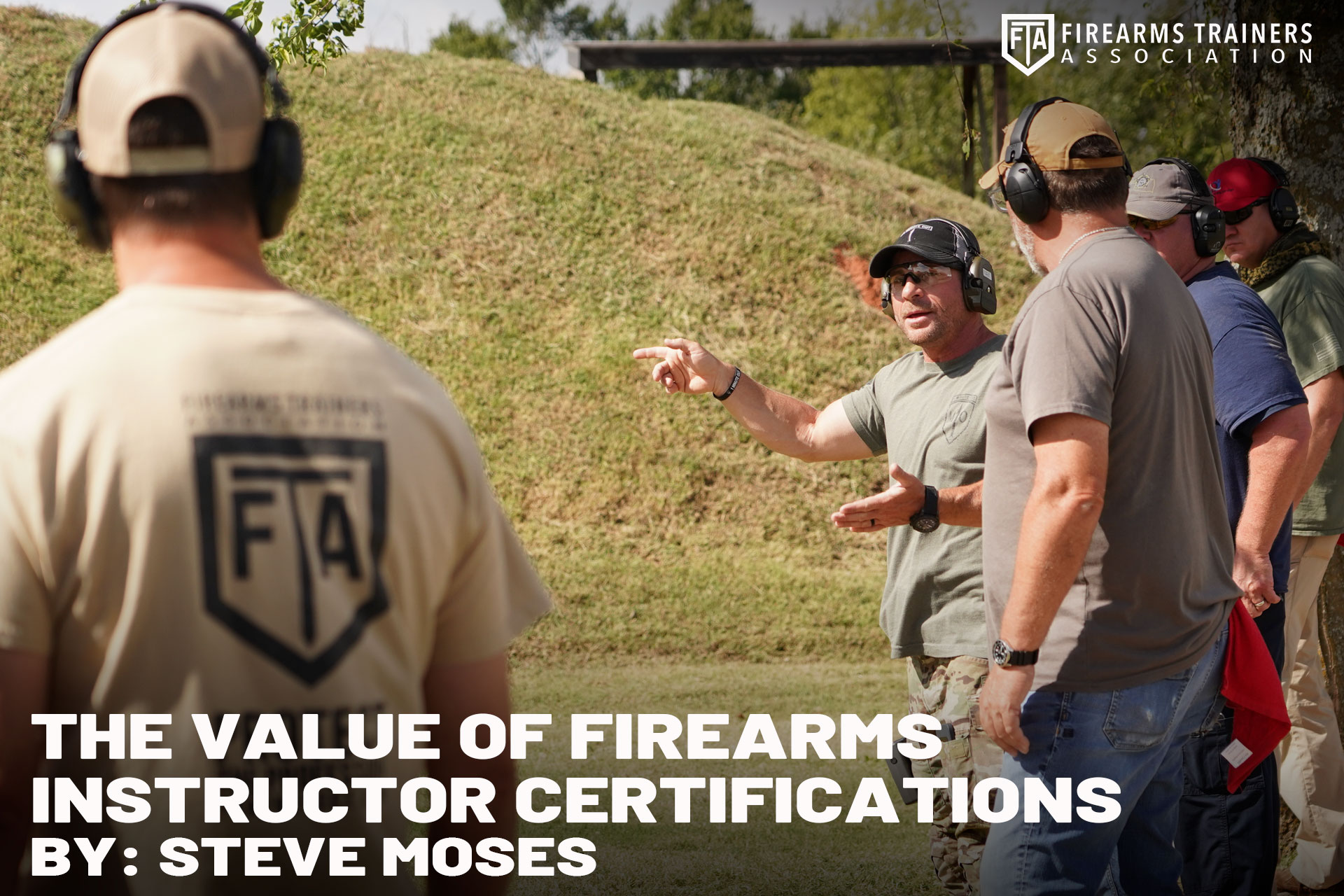
Posted on March 2, 2023 by Justin Collett in Training
THE VALUE OF FIREARMS INSTRUCTOR CERTIFICATIONS
Instructor certification is simply a process of earning an instructor development certificate by successfully completing a course taught by a nationally recognized person or entity qualified to teach students on how to become better instructors. Instructors possessing these credentials may signify to others that they have likely been exposed to content covering critical aspects of defensive firearms training and were provided with specialized training necessary to more effectively and efficiently instruct others. These instructors may be perceived as both possessing a commitment to excellence and dedication to the profession and their students. As a direct result, their students tend to learn more in what is more than likely a significantly safer environment
The instructor should use the most effective methods of teaching defensive firearms skills to students and know the best (and current) practices in the industry. Teaching should include familiarizing the students with the realities of physically dealing with one or more individuals who have the ability, opportunity, and intent to harm or kill the student and/or their loved ones followed by running the students through drills that both effectively and efficiently teach defensive techniques with firearms. The instructor should ideally know the history and development of defensive techniques and be prepared to properly address questions that students may pose with answers that are not only clear but as factual as possible.
Instructors who take instructor classes can learn in hours or days what it may take years to learn from direct experience. Most of us will never live long enough to gather all the information, knowledge, and skills necessary to become a competent defensive firearms instructor through direct experience alone. While I think direct experience is a huge benefit to an instructor that can provide some insights that can’t otherwise be learned, it alone is likely not enough possible due to multiple variables. Some of the best lesson plans being taught today incorporate tactics and techniques that were taught hundreds of years ago.
I credit my completing instructor classes under John Farnam, Bennie Cooley, Jr., Tom Givens, Karl Rehn, Ed Monk, Chuck Haggard, and Jerry Wetzel for making me a significantly better instructor than I would have been otherwise. Much of what and how I teach was learned through them, and combined with my own direct experience makes me far more prepared to develop and effectively implement lesson plans. In the words of author Michael P. Ghiglieri: “Imitation is a lot cheaper that inventive genius”.
In every class that we teach I keep in the back of my mind that one of the students in that class may someday be involved in an encounter that brings them into contact with law enforcement and the legal system. I want that student to be as prepared as possible to successfully navigate those waters. If something that we taught or said gets introduced in the courtroom, I want to be able to defend it if needed by being able to prove that it was both correct and reasonable under the circumstances. I am unable to remember the number of times I heard something in an instructor class that made me aware of something that I did not know or had not considered, or in some cases, represented a far better articulation of something that I did know. My lesson plans over the years have been revised multiple times as a result.
In my sole opinion, taking one or two instructor or instructor development courses does not make me a subject matter expert on a topics like high-risk entry, force-on-force, active shooter response, or empty hand knife defense. My company offers a Church Security Team Instructor/Leader Development course in which we provide our students with a copy of our lesson plan and PowerPoint Program at the end of the class that serves as a template that they may use and revise as they see fit based upon our nearly sixty cumulative years of defensive firearms training experience plus fifteen years of cumulative church security experience in which two of us spent much of that time in team leadership roles. The instructor classes that we attended were all taught by nationally-known trainers whose experience in their disciplines matched or exceeded ours.
I think the greatest gift a firearms trainer can give to themselves is to take as many firearms (or related disciplines) instructor classes as they can. There is a reason that one of the greatest firearm trainers I know who probably teaches more instructor classes each year than anyone else still takes instructor classes too. If Tom Givens thinks it is a good idea to take those classes, then it probably it is.